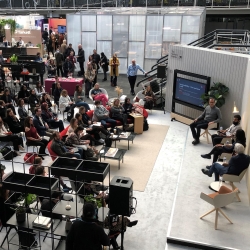October 30, 2023
Firms are throwing resources at AI knowing they are likely to fail
 Despite a recent track record of failure when implementing digital strategies, more than three quarters of UK businesses are gearing up to invest in artificial intelligence over the next 12 months without really knowing what they are doing. Nearly three-quarters (73 percent) admit to being ill-prepared for the integration of the technology into their operations, according to new survey. The report [registration] from tech consultancy Infinum suggests that over two-thirds of UK businesses that invested in digital products over the past five years have faced failure and are about to invest in AI knowing of their own poor track record. (more…)
Despite a recent track record of failure when implementing digital strategies, more than three quarters of UK businesses are gearing up to invest in artificial intelligence over the next 12 months without really knowing what they are doing. Nearly three-quarters (73 percent) admit to being ill-prepared for the integration of the technology into their operations, according to new survey. The report [registration] from tech consultancy Infinum suggests that over two-thirds of UK businesses that invested in digital products over the past five years have faced failure and are about to invest in AI knowing of their own poor track record. (more…)

















 For European real estate owners and investors already on a journey to net-zero-carbon through retrofitting, upfront spending has the potential for long-term rent and capital-value accumulation, according to a new report from Colliers.
For European real estate owners and investors already on a journey to net-zero-carbon through retrofitting, upfront spending has the potential for long-term rent and capital-value accumulation, according to a new report from Colliers. 
 Workspace Design Show, the leading trade show bringing together the UK workplace design community, returns to London’s Business Design Centre for its eagerly awaited third UK edition from 27-28 February 2024. At the 2023 event, visitor number increased by an impressive 75 percent year on year with exhibitors from over 20 countries showcasing innovative and transformational workplace interiors products over the two days. Building on this success, over three quarters of stand space is already booked for 2024.
Workspace Design Show, the leading trade show bringing together the UK workplace design community, returns to London’s Business Design Centre for its eagerly awaited third UK edition from 27-28 February 2024. At the 2023 event, visitor number increased by an impressive 75 percent year on year with exhibitors from over 20 countries showcasing innovative and transformational workplace interiors products over the two days. Building on this success, over three quarters of stand space is already booked for 2024. 











September 14, 2023
Is the Flexible Working Bill a game changer or paper tiger?
by Sam Ross • Comment, Flexible working